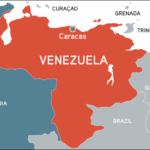
In a significant political development, a fierce row has erupted over the upcoming inauguration of the new Parliament building in India, as 20 opposition parties have decided to boycott the event. The controversy stems from Prime Minister Narendra Modi’s decision to preside over the ceremony, which has raised questions about the roles of the President and the Prime Minister within the constitutional framework. The boycott has ignited a national debate, casting a shadow over the highly anticipated event.
The political discord surrounding the inauguration has escalated to the point where a lawyer has petitioned the Supreme Court, seeking an invitation for President Droupadi Murmu to preside over the ceremony. The apex court is expected to hear the petition on Friday, adding another layer of complexity to the situation.
Twenty opposition parties, including the Congress, Aam Aadmi Party, and Trinamool Congress, issued a joint statement on Wednesday condemning PM Modi’s decision as an “assault on democracy.” They expressed their dissatisfaction with the Prime Minister assuming the role traditionally designated for the President during such events. The parties view this move as an infringement on democratic principles and an encroachment on the President’s constitutional duties.
However, not all political factions have embraced the opposition’s stance. The Biju Janata Dal and a few other parties have accepted the invitation, applauding the inauguration as a “momentous occasion” that symbolizes the true spirit of democracy.
Uttar Pradesh Chief Minister Yogi Adityanath criticized the opposition parties for clouding the event with what he described as “irresponsible” behavior. He emphasized the significance of the new Parliament building and urged all political stakeholders to set aside their differences and partake in the occasion in a dignified manner.
The controversy has sparked a larger discussion about the constitutional roles of the President and the Prime Minister, raising questions about the extent of the Prime Minister’s authority in ceremonial matters. Many constitutional experts and political commentators have voiced their opinions on the matter, contributing to the ongoing national discourse.
As the scheduled inauguration approaches, the nation remains divided on the issue. While the opposition parties stand firm in their decision to boycott the event, supporters of the Prime Minister argue that the inauguration should be viewed as a symbol of progress and national unity. With the Supreme Court set to weigh in on the matter, all eyes are on the upcoming legal proceedings, which could potentially provide a resolution to the contentious dispute.
The new Parliament building, intended to be a modern and iconic structure, was designed to accommodate the evolving needs of the country’s legislative process. However, its inaugural ceremony has become entangled in a political quagmire, highlighting the deep-seated divisions in the country’s political landscape. As the controversy unfolds, the nation awaits a resolution that can restore harmony and uphold the democratic values that lie at the heart of India’s parliamentary system.











